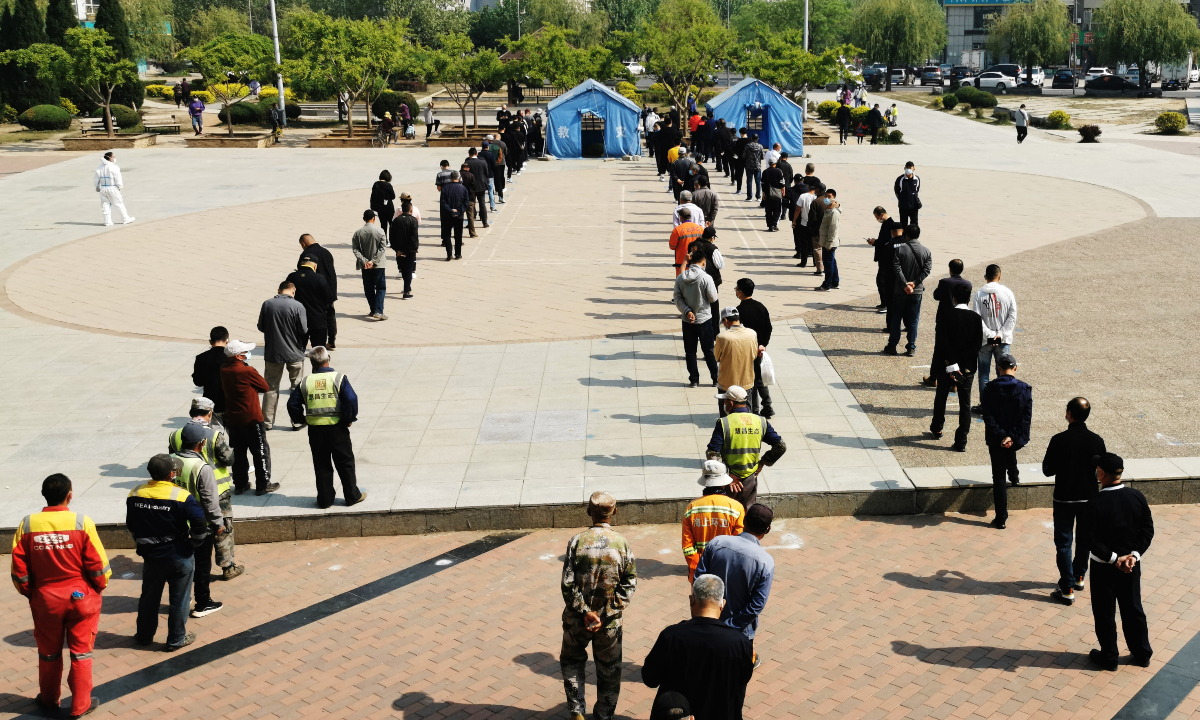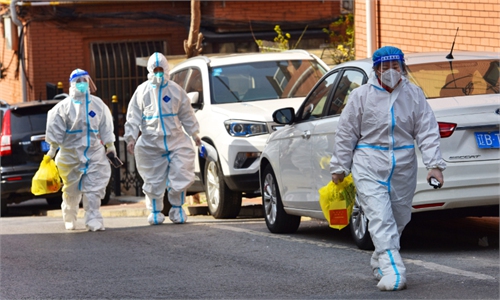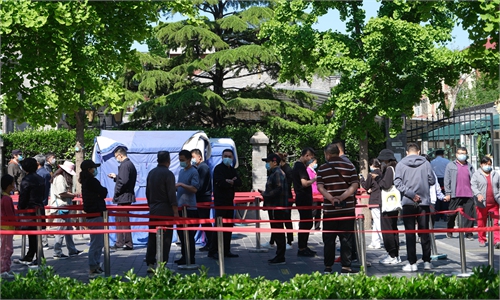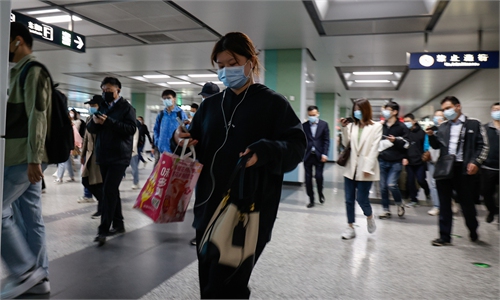Men and women in NE China’s Dalian to take nucleic acid tests on Tuesday and Thursday respectively to improve detection timeliness

Male residents queue up for nucleic acid testing on a plaza in port city Dalian, Northeast China’s Liaoning Province, on May 17, 2022 when the city launched a citywide testing for different genders on Tuesdays and Thursdays respectively. Photo: IC
Normalized nucleic acid testing plan has been detailed in port city Dalian in Northeast China’s Liaoning Province with men and women divided to be sampled on two different weekdays in a bid to improve the sensitivity and timeliness of detection.
The citywide normalized nucleic acid testing will be launched on Tuesday, the city’s authority announced during a press briefing on Monday afternoon, detailing that male residents will be tested collectively on Tuesdays and female residents on Thursdays and that both genders can be tested on Saturdays.
Separating the detections for male and female family members of a household is equivalent to monitoring the same family twice a week, maximizing the risk warning function under the most economical and convenient premise, the local authority explained.
Part of the sampling sites around the city will be open on the other days of the week to provide service for people who come to and return the city and other people in need of testing.
The city’s epidemic prevention and control headquarters previously advocated family members of a household taking nucleic acid tests on different dates of a week so as to maximize the monitoring and early warning function of normalized regular nucleic acid tests.
According to the local authority, the fast-spreading Omicron variant can generate a new generation of transmission within two to three days on average, thus different groups of people arranged to be tested on Tuesdays, Thursdays and Saturdays every week will help to identify risks and to achieve early detection in terms of time distribution.
Concerning that family gathering constitutes an important risk of community transmission, dividing family members on different dates to get tested will help the early detection of potential risks in a household, which is beneficial for multi-point trigger mechanism to take effect and improve the sensitivity and timeliness of detection.
The city’s epidemic prevention and control headquarters had previously explained that regular nucleic acid testing is an important means to detect epidemic risks in a timely manner and to ensure social security and public health.
Every resident will be sampled and tested once every seven days considering the characteristics of the spread of the virus, the convenience for the residents and social costs, which the headquarters noted can basically meet the screening needs of the groups at low-risk.
Groups at high-risk including imported cold-chain industry related practitioners, airports and ports related personnel, and medical workers will be sampled and tested at designated sites according to original regulations.
Global Times



